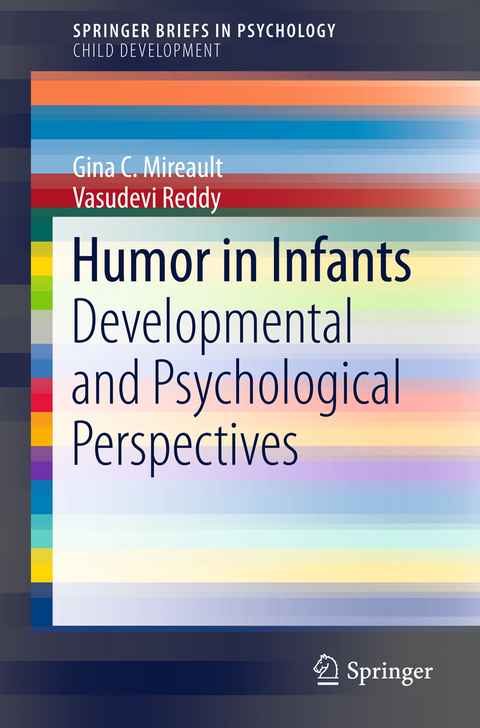
Humor in Infants
Springer International Publishing (Verlag)
978-3-319-38961-5 (ISBN)
This singular text:
- Reviews theories and findings on humor and its critical role in social behavior.
- Analyzes the challenges of researching humor in infants and young children.
- Differentiates among concepts and contexts of humor and playfulness.
- Situates humor as a social-emotional as well as cognitive experience.
- Details current research on humor in atypically developing children.
- Examines the role of culture in humor.
Gina Mireault, Ph.D., is a Developmental Psychologist and Professor in the Behavioral Sciences Department at Johnson State College. She studies the perception and creation of humor in infants from 3 months to 12 months of age, addressing the question: How do babies figure out what is funny? She is interested in the serious implications of humor research for understanding critical developmental milestones, such as whether or not infants are capable of a "theory of mind", whether or not humor can contribute to attachment security with parents, and whether or not infants rely on parental emotion to interpret and regulate their own emotional response to ambiguous events. She is intrigued by young infants' detection of absurdity and what it may indicate about their early knowledge of social behavior. Vasudevi Reddy, Ph.D., is Professor of Developmental and Cultural Psychology at the University of Portsmouth in the United Kingdom. She is interested in the origins and development of social cognition, mainly in young infants. She has been exploring the role of emotional engagement in social understanding, focusing on such everyday, ordinary engagements as teasing and joking and showing-off or feeling shy, which often tend to be ignored in mainstream theories. She is Director of the Centre for Situated Action and Communication, which explores ideas of context and situation on different kinds of psychological phenomena. Her interest in engagement as the route to understanding has led her to questions about the nature and influence of cultural engagements on social understanding.
Chapter 1: An Overview of Humor.- Chapter 2: The Development of Humor.- Chapter 3: Playfulness.- Chapter 4: Humor as a Social-Emotional Phenomenon.- Chapter 5: When Humor Goes Missing.- Chapter 6: Humor and Culture.
"Gina Mireault and Vasudevei Reddy, authors of Humor in Infants: Developmental and Psychological Perspectives, have written a short book totaling only 62 pages that examines numerous aspects of cognitive and emotional development in the first year of life as they might relate to the development of humor. ... offers the interested reader a nice little summary of the thinking as well as the research on the topic of humor in infancy. It is a good jumping-off point for further study." (Ronald J. Friedman, PsycCRITIQUES, Vol. 62 (1), January, 2017)
| Erscheinungsdatum | 08.10.2016 |
|---|---|
| Reihe/Serie | SpringerBriefs in Child Development | SpringerBriefs in Psychology |
| Zusatzinfo | XI, 62 p. |
| Verlagsort | Cham |
| Sprache | englisch |
| Maße | 155 x 235 mm |
| Gewicht | 148 g |
| Themenwelt | Geisteswissenschaften ► Psychologie ► Entwicklungspsychologie |
| Medizin / Pharmazie ► Medizinische Fachgebiete ► Pädiatrie | |
| Schlagworte | Absurdity in infants • Behavioral Science and Psychology • Clowning in infants • Developmental Psychology • Humor in infants with atypical development • Humor in typically developing infants • Incongruity in infants • Infant humor • Infant laughter • Infant mental health • Pediatrics • Playfulness in infants • Smiling in infants • Social-cognition of infants • Social-emotional development of infants • Social referencing in infants • Teasing in infants |
| ISBN-10 | 3-319-38961-0 / 3319389610 |
| ISBN-13 | 978-3-319-38961-5 / 9783319389615 |
| Zustand | Neuware |
| Haben Sie eine Frage zum Produkt? |
aus dem Bereich


